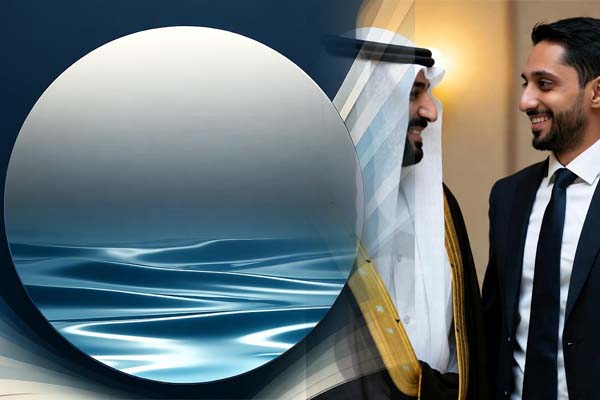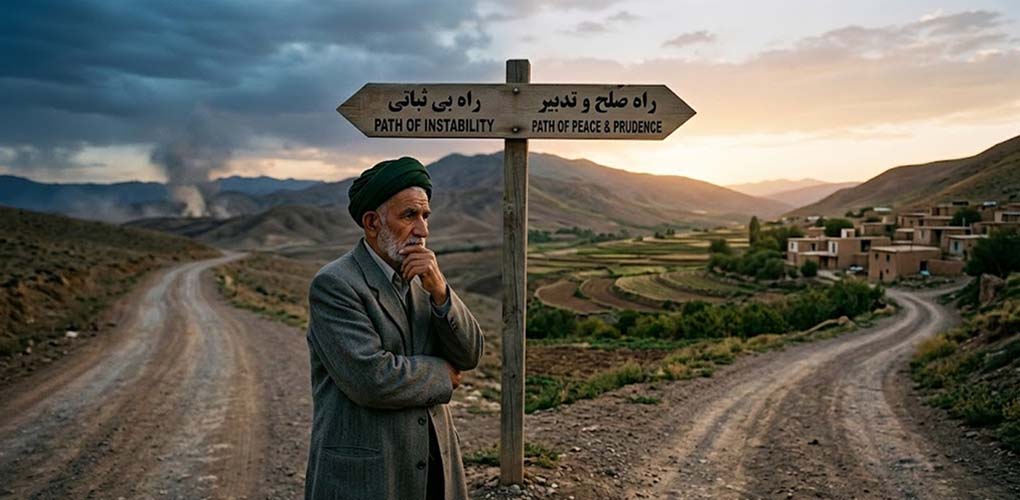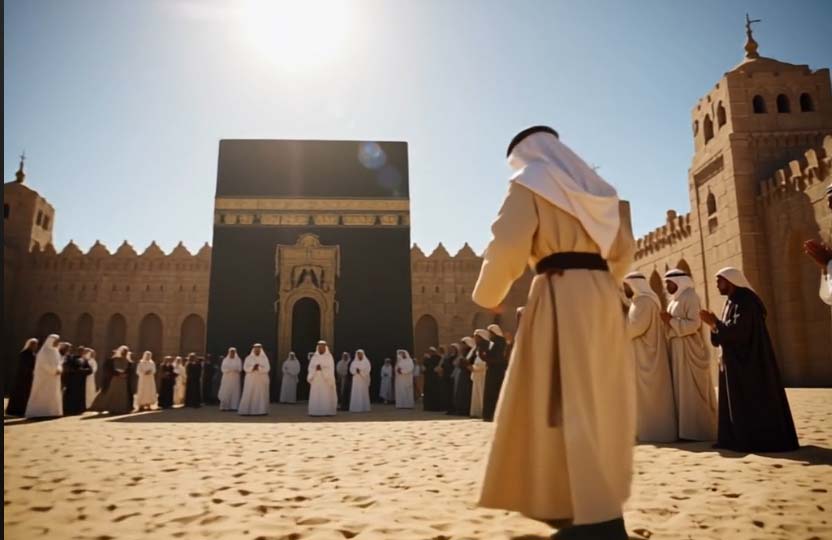 Najmuddin A Farooqi.
Najmuddin A Farooqi.
The world is in a constant state of change. History shows that transformation whether in governments, monarchies, or societies is a recurring phenomenon. Human nature itself resists stagnation, people inevitably seek progress and reform. Examples can be seen in Russia’s past revolutions and China’s gradual transitions. No system imposed by force can endure indefinitely.
Within this ever-changing global landscape, the Kingdom of Saudi Arabia (KSA) holds a uniquely sacred position one not determined by kings or governments, but by divine will. The land’s sanctity dates back thousands of years, to the era of Prophet Ibrahim (peace be upon him), when the House of Allah, the Kaaba (Baitullah), was built. This house became the eternal center of Tawheed (the oneness of God) for all humankind until the Day of Judgment.
The Quran, in Surah At-Tawbah, describes how the custodianship of the Kaaba was taken away from polytheists ( mushrikeen ). Over the centuries, power in this sacred land shifted from the Abbasids to the Turks and later, in the 18th century, to a new leadership shaped by a remarkable Islamic revival. This transformation was led by the eminent scholar and reformer Sheikh Muhammad ibn Abdul Wahhab.
Sheikh Muhammad ibn Abdul Wahhab and the Revivalist Movement
Born in 1703 in Najd, Sheikh Muhammad ibn Abdul Wahhab belonged to the Ahl-e-Sunnat wal Jamaat and followed the Hanbali school of thought, though he held deep respect for the other leading Imams Abu Hanifa, Shafi’i and Malik (may Allah be pleased with them). Scholars from institutions such as Darul Uloom Deoband have recognized his contributions as rooted in Islamic reform rather than sectarian division.
At the core of his teachings was the revival of pure monotheism and the elimination of innovations (bid‘ah) and polytheistic practices (shirk). His efforts, combined with the political leadership of the House of Saud, laid the foundations of the modern Saudi state.
In Islam, the essential tenets are sacrosanct: belief in the oneness of Allah, the Prophets, the revealed books, the angels, the Day of Judgment and adherence to the Five Pillars Kalima, prayer, fasting, zakat and pilgrimage (Hajj).
Monarchy and the Role of Religious Leadership
Monarchical governance has both strengths and weaknesses. It allows swift decision-making but also depends heavily on the wisdom and character of successive rulers. After Ibn Abdul Wahhab’s era, the ulema held considerable influence in shaping the moral and religious fabric of society. Their firm stance against shirk and bid‘ah safeguarded orthodoxy but, over time, some excesses occurred.
One such error was the belief that the state must enforce every aspect of Shariah in individuals’ private lives. The pulpit, meant for spiritual guidance and moral reminders, sometimes became an instrument of rigid control. As a result, personal freedoms especially for women were heavily restricted. Over nearly a century, this rigid approach fostered dissatisfaction and a desire for balance.
Today, a new, educated generation including members of the royal family has emerged. This group seeks modernization while preserving the spiritual sanctity of the land, especially the holy cities of Makkah and Madinah (Haramain Sharifain), described in the Quran as “Cities of Peace.” These cities must remain distinct from ordinary urban centers, upholding an atmosphere of reverence for pilgrims performing Hajj and Umrah.
Non-Muslims may visit Saudi Arabia for temporary employment, as was permitted even during the Prophet’sﷺ time, but permanent settlement or the construction of non-Islamic places of worship remains prohibited, maintaining the region’s unique religious integrity.
The Tablighi Jamaat: Purpose and Controversy
The Tablighi Jamaat (TJ) was founded in 1926 by Maulana Muhammad Ilyas Kandhlawi (RA), a graduate of Darul Uloom Deoband and follower of Imam Abu Hanifa. Inspired by renowned scholars such as Maulana Imdadullah Muhajir Makki(RA) and Maulana Rashid Ahmad Gangohi(RA), Maulana Ilyas dedicated his life to spiritual reform.
The movement’s aim was simple yet profound: to reconnect Muslims with their faith, encourage regular mosque attendance and promote personal piety through peaceful, non-political means. TJ is not an organization in the formal sense it has no registration, hierarchy, or legal status but functions as a voluntary, grassroots effort toward religious revival.
As India’s former Home Minister L.K. Advani once clarified in Parliament (1998–2004), the Tablighi Jamaat is an apolitical movement devoted to spiritual purification within the Muslim community and poses no threat to national security or unity.
A controversy, however, emerged in December 2021 when an Imam of the Haram criticized TJ during a Friday sermon. Social and mainstream media widely circulated this statement, though two versions of the story appeared: one referring to India’s Tablighi Jamaat, the other to Tabligh Dawah al-Ahbab, a group rooted in Africa.
Friday sermons in Saudi Arabia often reflect the guidance of the ruling authorities and criticism of foreign religious movements is not new. The Saudi government has long sought to prevent external influences from shaping its internal religious narrative, particularly given its global responsibility as the custodian of Islam’s holiest sites.
The Vision of Crown Prince Mohammed bin Salman
Since his appointment as Crown Prince and Prime Minister in June 2017, Mohammed bin Salman has emerged as the de facto ruler of Saudi Arabia. Despite controversies, his tenure has brought unprecedented modernization in education, science, technology and economic development, drawing global attention to the Kingdom’s transformation.
Academic Progress
Saudi universities now rank among the world’s best. In 2021, King Abdulaziz University was ranked 190th globally, while King Saud University and King Fahd University of Petroleum and Minerals were among the top 400. Six Saudi universities appeared in the Shanghai Rankings, with King Abdulaziz and King Saud Universities among the top 150 worldwide.
Scientific Advancement
According to SCIMAGO IBER Ranking, King Abdullah University of Science and Technology, King Abdulaziz University, and King Saud University are among the world’s top 200. Saudi Arabia also leads globally in research citation improvement (35%), reflecting a strong culture of innovation.
Economic Growth
After years of deficit following the 2014 oil price crash, Saudi Arabia achieved a projected budget surplus of 90 billion riyals ($24 billion), or 2.5% of GDP the first in nearly a decade in 2022.
Human Development and Women’s Empowerment
With a Human Development Index of 0.854 in 2019, Saudi Arabia ranks 40th globally, on par with Hungary. In 2024 it has further improved to HDI 0.875 and ranked 36th globally. Women’s rights have also advanced significantly. In the World Bank’s 2021 Women, Business and the Law index, Saudi Arabia scored 80 out of 100 above the global average. Equal pay laws and women’s participation in the workforce mark major social reforms. In a landmark decision MBS has abolished decades old Kafala system of sponsorship, it’s key elements of reform:
•Migrant workers will be able to change jobs without needing the sponsor’s consent.
•They will be allowed to exit and re enter the country without needing sponsor’s approval for exit visa.
Economic Freedom
The Kingdom’s economic freedom score rose to 66.0 in 2021, placing it 63rd globally a result of improved business regulations and a growing private sector.
Saudi Arabia stands at a crossroads where tradition meets transformation. Guided by its divine heritage and shaped by visionary leadership, the Kingdom continues to balance religious sanctity with progress in science, education and human development. If this balance is maintained honoring the sacred while embracing the modern the Kingdom of Saudi Arabia will continue to serve as both the spiritual heart of Islam and a beacon of reform in the Muslim world.



